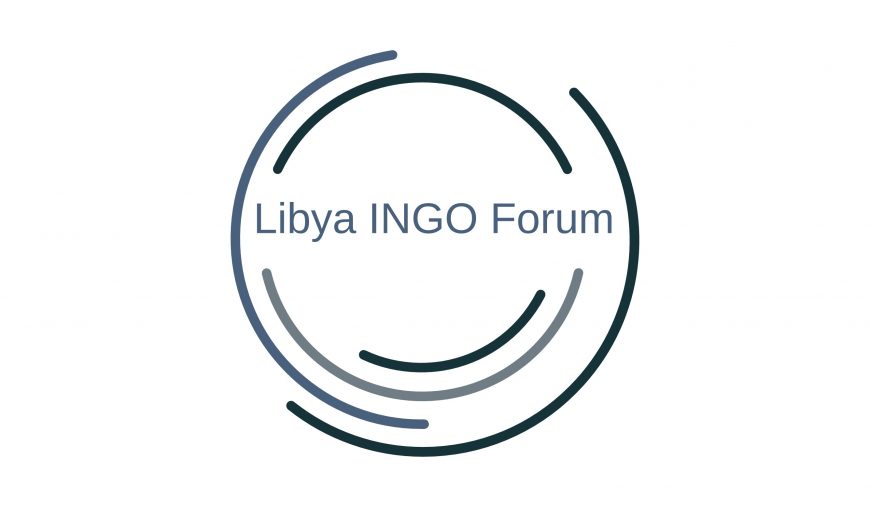The Libya INGO Forum members commit to support the country to cope with the COVID-19 pandemic and call on the authorities for equal and fair access to medical services for all people in Libya.
Tripoli/Tunis, March 26th, 2020
The INGOs are deeply saddened by the news of the first case of COVID-19 in Libya on March 24th, which marks the country’s shift from preparedness to response. While deeply worried about the damaging impact the global pandemic will have on the lives of people in Libya, INGOs commit to working alongside the Libyan health authorities in the fight against the deadly disease, and to continue supporting people with essential humanitarian services in the conflict-affected country. In this respect, INGOs are thankful for efforts made by authorities from both sides to preserve humanitarian access and facilitate travel and movements of essential humanitarian staff and hope this access will be maintained all along.
As a result of the ongoing conflict, Libya’s health system is severely challenged. Lack of specialized medical staff, medical equipment, and the overall medical capacity to respond to the emergent health needs can lead to an unthinkable amount of lives lost if conflict does not end. We, therefore, call upon all parties to the conflict to urgently agree to a ceasefire and immediately desist from hostilities to enable an immediate and efficient humanitarian response to the Covid-19 threat.
While committing to working closely with national authorities, Ministries of Health, WHO and all medical mandated agencies, INGOs also call on the Libyan authorities to address the needs and vulnerabilities of all people in Libya – Libyan and non-Libyan – in national preparedness and response plans and to ensure that all have access to adequate and accurate information and services.
We also urge the competent authorities to prevent any forced return and blocked the entry of displacementaffected populations, whether based on real or perceived fears of potential COVID-19 transmission. Restrictions on freedom of movement, or other measures instituted by national and local authorities, should be applied fairly to all, Libyan and non-Libyan, in a non-discriminatory manner.
People living in overcrowded areas lack access to water, sanitation, and hygiene facilities, and do not have access to basic healthcare, including vaccination programs. This includes refugees and migrants in urban settings or official or non-official detention, internally displaced Libyans, incarcerated persons, as well as non-displaced vulnerable Libyans of all ages. Also, particularly at risk are the persons more isolated and less able to access key messages and services, such as persons with disabilities, older persons, persons with injuries or chronic disease. The epidemic response planning must be reflective of this reality in the compounding emergency response in Libya.
Equal distribution of healthcare services for all – Libyan and non-Libyan, is required now more than ever. COVID19 affects people indiscriminately, but the most vulnerable people – regardless of their origin – will suffer the most. COVID-19 has deeply strained the healthcare systems all around the world and in every country affected to date, resulting in high numbers of deaths and widespread suffering never before encountered by the humanitarian community worldwide; this virus is expected to have dramatic consequences on vulnerable groups in Libya, who already report having limited access to medical care, basic hygiene, and other basic services.
The international community must also not turn its back to Libya and complex emergency countries, and act in solidarity. Consequently, donors should ensure the availability and flexibility of funding in these deeply challenging times. This will enable humanitarian actors to adapt and scale up their response at this most critical time when the needs are most urgent and pose the greatest threat to the health and security of all in Libya.
To read the press release in Arabic:
Download